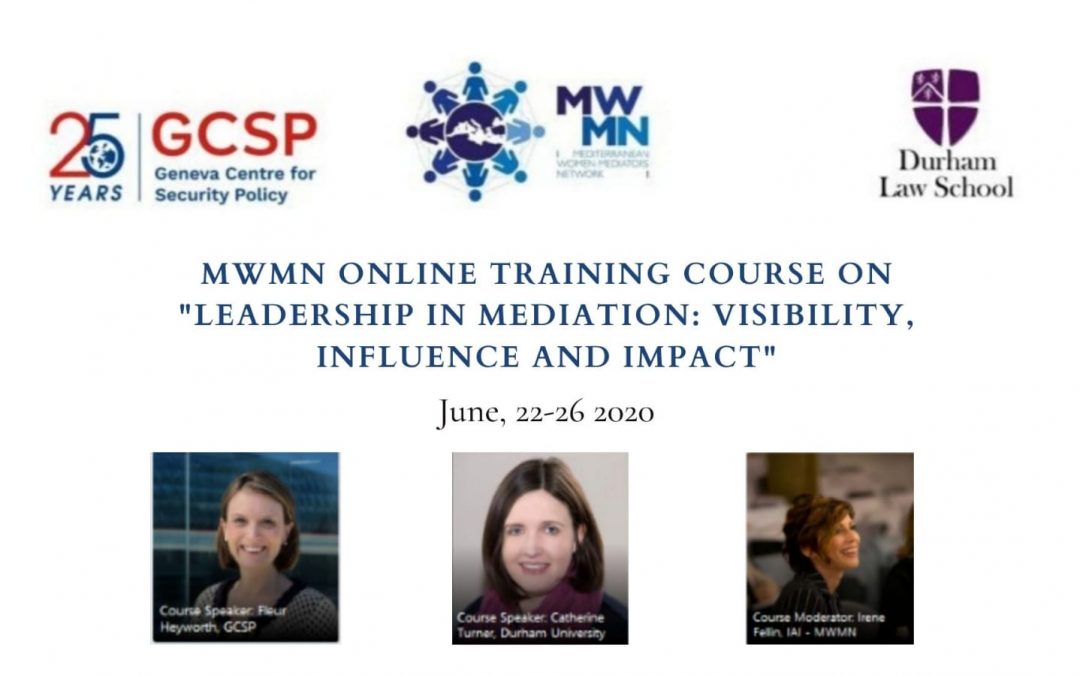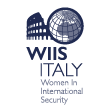With a view of continuing to provide training opportunities for Mediators, the MWMN has partnered with The Geneva Centre for Security Policy (GCSP) and Durham University to offer a customized online course on “Leadership in Mediation: Visibility, Influence and Impact”. The course, held from 22 to 26 June 2020 with a pre-course phase starting from 18 June, was conducted by Fleur Heyworth, director of the GCSP’s executive education, dialogue and policy analysis on Gender and Inclusive Security, and Dr Catherine Turner, Associate Professor of International Law at Durham University, UK, and deputy director of the Durham Global Security Institute and moderated by Irene Fellin, Head of the MWMN Secretariat.
Both speakers have a vast expertise in designing trainings on leadership for women and experience in advancing women’s participation in mediation processes. Fleur, working closely with the Geneva Leadership Alliance, a unique partnership between The Center for Creative Leadership and the GCSP, designs and facilitates courses on gender and leadership for women, and for all leaders to create more inclusive working environments. She is also responsible for the Secretariat of the International Gender Champions (IGC), hosted by GCSP. Catherine has published several academic and policy papers on the subject of advancing women in mediation and is the co-editor of the forthcoming volume Rethinking Peace Mediation (Bristol University Press). She also has extensive experience as a practitioner and trainer in mediation and good relations in Northern Ireland.
The course aimed at offering participants a learning and growing opportunity, both as individuals, as well as members of the Network, with the goal of understanding how each mediator can contribute to make MWMN even more inclusive and effective. In particular, the course has been designed to support the group to develop a strategic vision for the Network and enhance members’ self-awareness of their values, preferences and leadership style, and increase their ability to flex and adapt. Moreover, mediators had the opportunity to understand mediation and leadership as processes and consider their respective roles and contribution within both; as well as to increase understanding of key factors contributing to trust in mediation and leadership. Finally, participants could understand and practice effective communication and influencing skills, including responding to tensions and leading difficult conversations, practice articulating key messages and giving and receiving feedback.




